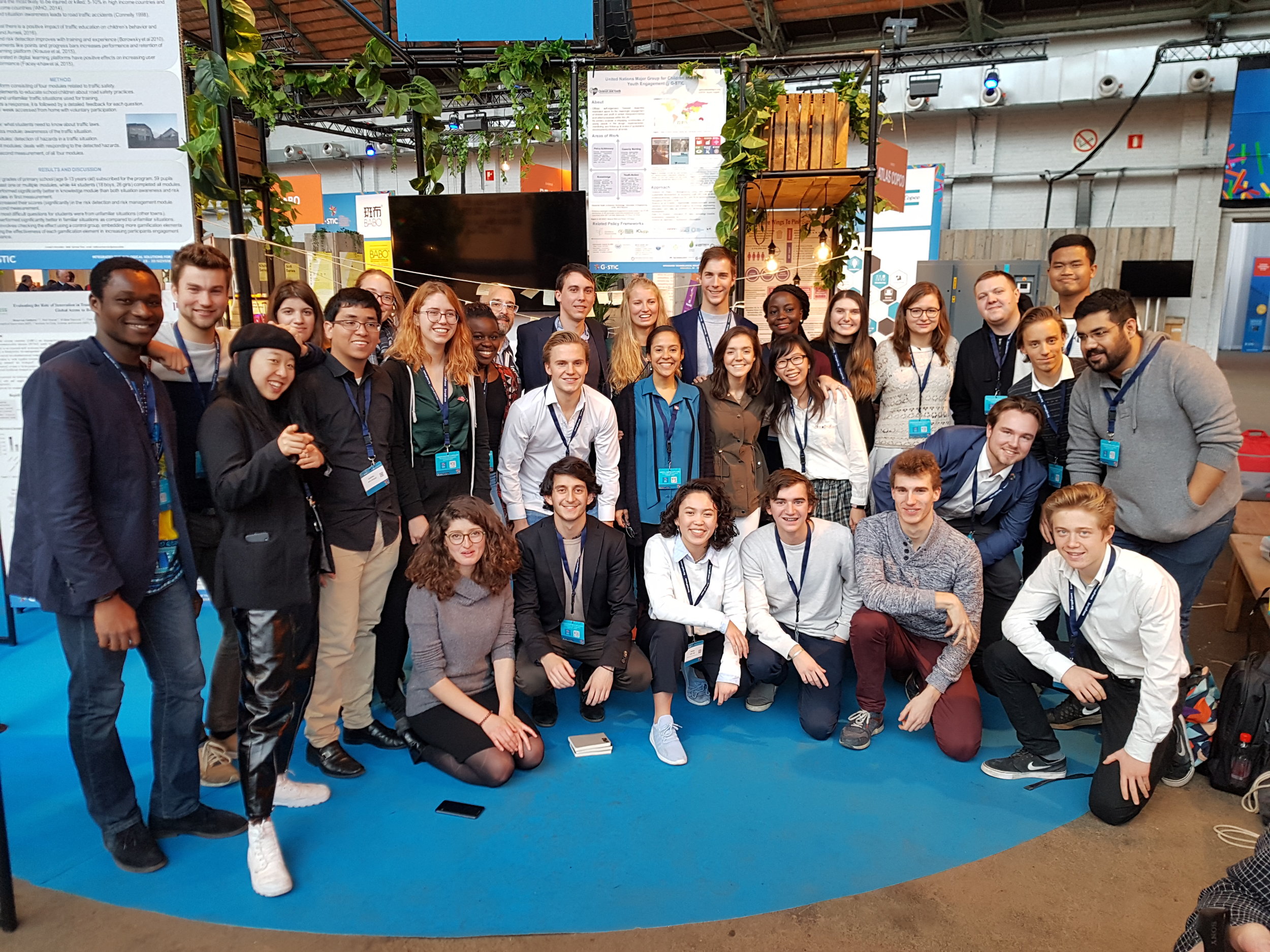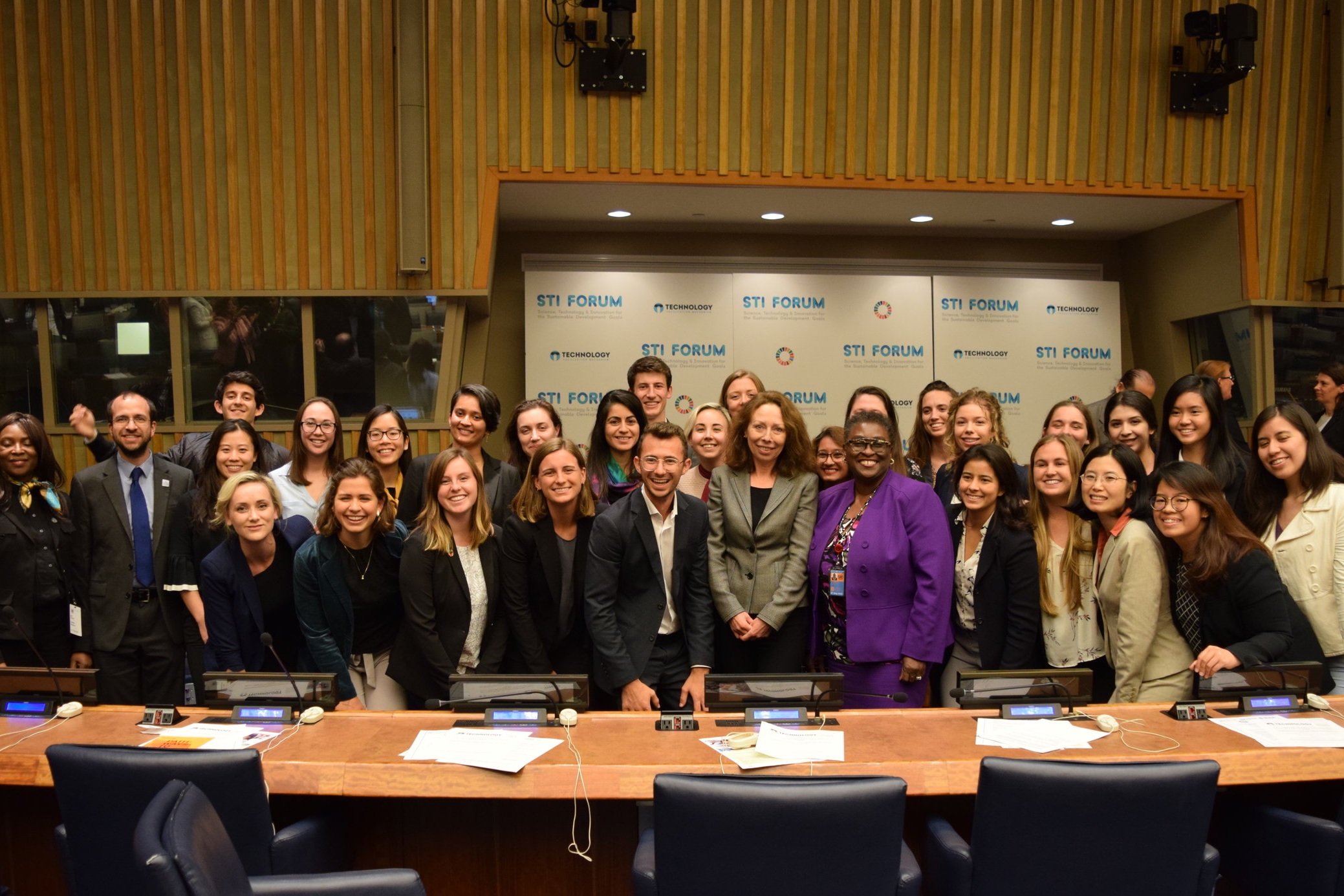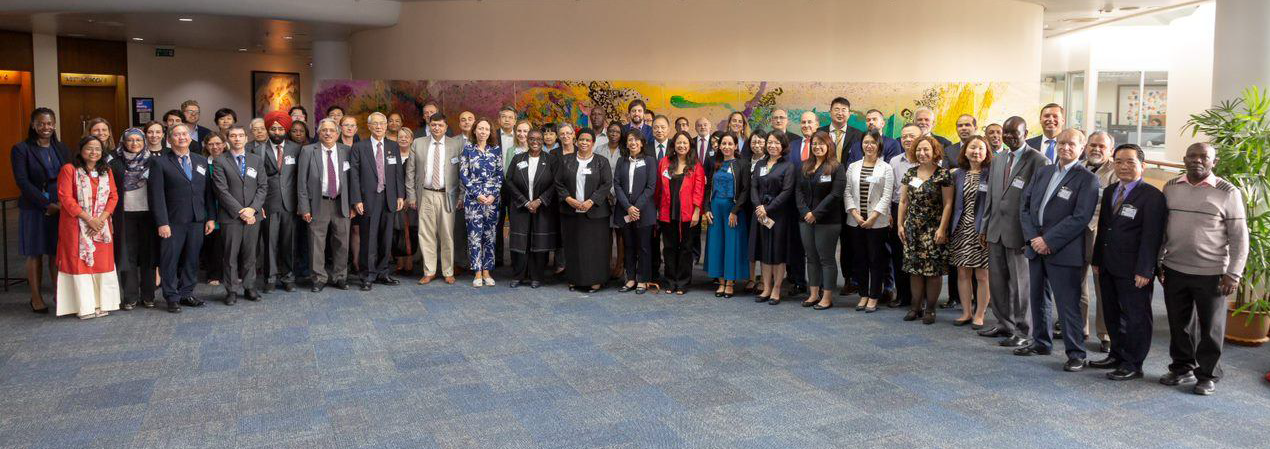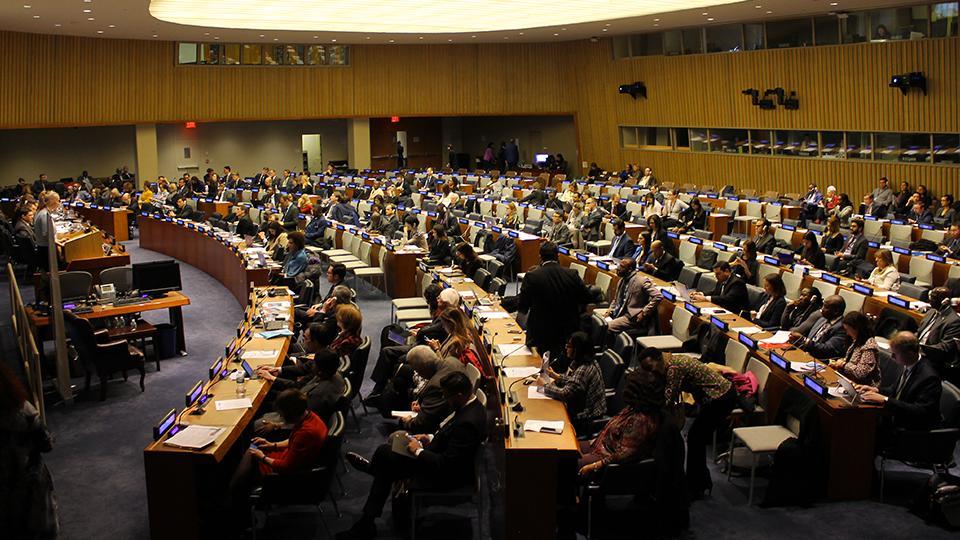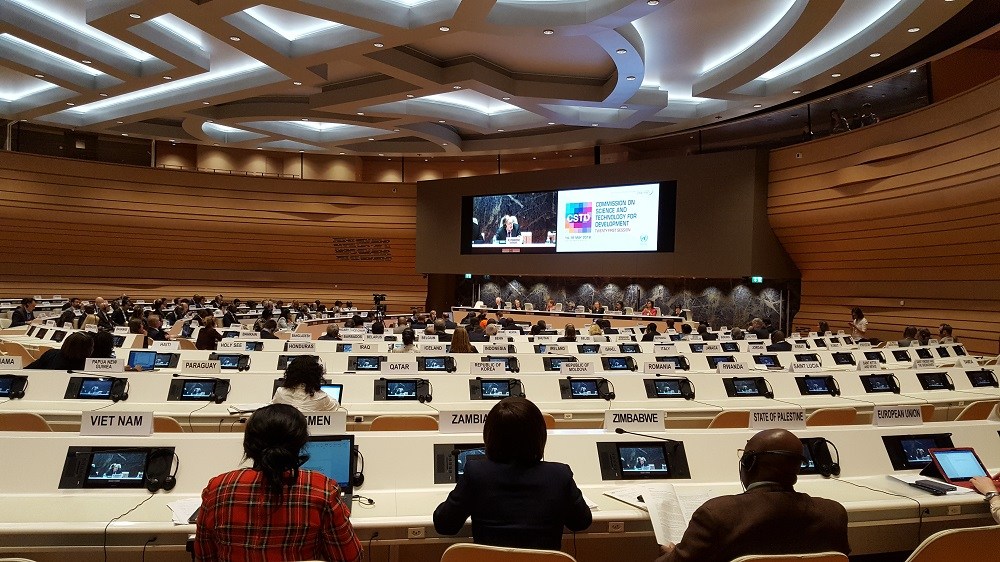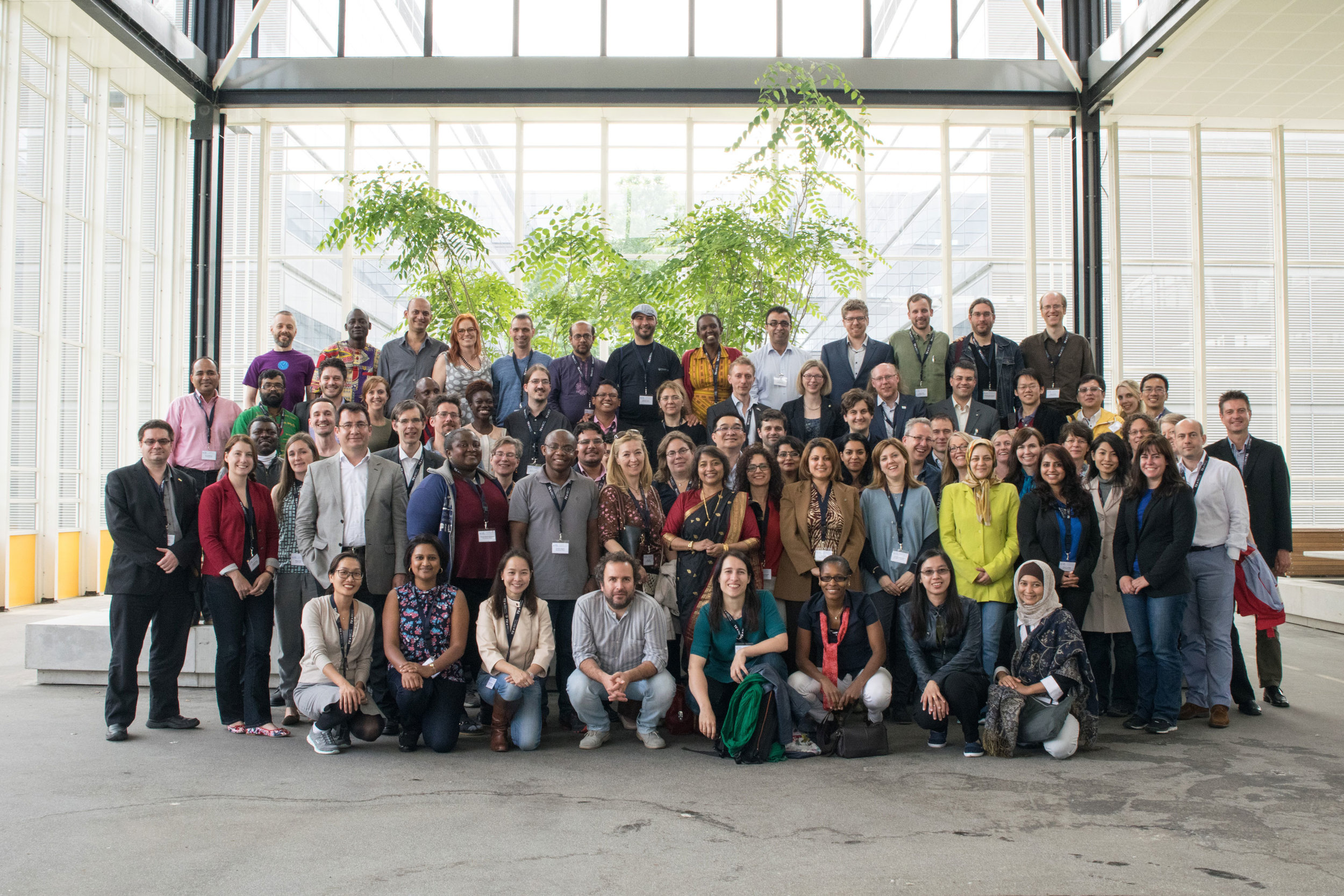A global network of young people at the intersection of science, technology, policy, & diplomacy
Join our mailing list here.
What is Science-Policy?
The Science-Policy Interface has become an increasingly important component of sustainable development within the United Nations system, as well at regional and national levels. It provides the foundation for evidence-informed policies, facilitates the use of science as an enabler in policy design, implementation, monitoring, follow-up and review, and provides a unique scientific lens into monitoring impact. Furthermore, it is an integral part of identifying emerging priorities, drawing links between the interconnected nature of thematic issues, and devising solutions to address challenges and barriers to progress.
Science-policy interfaces can take many different forms:
Science in policy / diplomacy
Science for policy / diplomacy
Policy / Diplomacy for science
Science as a “means of implementation” (e.g. technology/innovation)
Data for Sustainable Development
*The use of “science” includes its broadest definition, including the social, natural, engineering, mathematical, and other sciences, as well as diverse sources of knowledge (formal, informal, traditional, indigenous, etc.). The discussion on science-policy is also often done in the context of the broader and more commonly used acronym of “SETI” - science, engineering, technology and innovation.
Objectives of the SPI Platform
Age-balanced, rights-based participation in science-policy and SETI mechanisms within the UN system and associated avenues at global, regional, & national levels
Capacity building for youth to effectively engage in science-policy and SETI, as it relates to the implementation, monitoring, and review of sustainable development frameworks
Generate with and share knowledge from various formal, traditional, and non-formal SETI knowledge systems (e.g. science-policy publications)
Youth actions leveraging SETI to support sustainable development efforts, in particular the Sustainable Development Goals, including through open science
"Vision for Youth in Science, Technology (Engineering) and Innovation at the UN and Beyond"
The vision was presented at the 2017 Science, Technology and Innovation forum at the UN
The Vision aims to enhance the meaningful institutional engagement of youth within the STI (including engineering) and science-policy interface (SPI) architecture of the UN and beyond. It engages youth towards more effective, coordinated, cohesive, and collaborative efforts in STI/SPI aimed at achieving the 2030 Agenda, as facilitated by the Science-Policy Interface Platform.
The Vision is a commitment by youth to further enhance the science-policy interface.It draws on making appropriate use of our growing capacities and responsibilities as adopters, users, and designers of technologies and innovations. It further calls upon stakeholders to work more systematically in coordinating activities on STI and youth, so as to leverage existing work, build connections, and fuel momentum.
It will be further enriched and enhanced over the next 13 years, using each STI Forum as a benchmark to assess progress and present deliverables as part of larger global efforts towards the 2030 Agenda.
A Global Network: Community & Partnerships
The Science Policy Interface (SPI) Platform is created as part of UN MGCY’s role in the implementation and follow up components of the 2030 Agenda for Sustainable Development and its obligation towards the High Level Political Forum, as well as a mandated follow-up process of Agenda 21 adopted in 1992.
Participation in the SPI Platform promotes universal and equitable access to all those interested in science-policy and related discussions. It seeks to mobilize communities of young scientists and practitioners through a youth-led and self-assembled space. The platform serves to enhance communication and knowledge sharing between the young people and science communities. This interdisciplinary and intergenerational communication will play a significant role in ensuring effective implementation of a robust and coherent science policy interface.
In particular the SPI Platform includes the following types of members:
Students (e.g. Bachelor, Master, PhD, Post-Doc)
Young and early career scientists that have recently graduated
Science-policy and science-diplomacy student groups, as well as those generally interested in SPI & SETI topics
Youth networks of existing science-policy/diplomacy networks
Child-and-youth serving organizations
Science-Policy Interface Publications
#Youth4CitizenScience
Citizen Science projects have grown in popularity as a method of democratizing science and have an important role to play in building more resilient and sustainable communities. Citizen Science activities are scientific projects where non-professional scientists volunteer to participate in data collection, analysis and dissemination. This offers new ways to combat biases and scale research in a way that is more inclusive and reflective of community priorities. Ahead of the 2019 Commission on Science & Technology for Development, a social media campaign was organized to feature youth-led citizen projects, including those featured in the video below.
Perspectives on New and Emerging Technologies
Resolutions passed by the UN General Assembly in 2017 and 2018 called for more serious discussion around the impact of rapid technological change on the achievement of the Sustainable Development Goals, part of a 15-year framework to address poverty in all its forms and leave no one behind. We live in a time of growing prosperity alongside growing concerns about inequality across various social, economic, and environmental dimensions.
This resolution was followed by two reports from the United Nations Department of Economic and Social Affairs and United Nations Conference on Trade and Development. Building on this work, in 2018, UN Secretary General launched a UN-system wide strategy on emerging technologies to better align them with the values enshrined in the UN Charter, the Universal Declaration of Human Rights, and the norms and standards of international law (link). Since then, UN MGCY has been collecting perspectives from young people around the world in the form of online and offline consultation. The following video was presented at the 2018 Commission on Science & Technology for Development.
SPI Platform 2023-24 Coordination Team
Facilitation of the SPI Platform is done by SPI Platform Coordinators and a team of SPI Focal Points from across the globe that are peer-selected. They can be reached at spiteam@unmgcy.org. Profiles will be updated shortly.
Barbara Del Castello - GFP
Abhijith Mathew - TFP, Data
Oumaïma Makhlouk -TFP, Data
Janelle Cheung -TFP, Data
Abu Bakar Ali - TFP, Open Science
JuliaWeiss - TFP, Open Science
Jonathan Kemp - TFP, Technology
Connie Siu - TFP, Technology
Sri Yash Tadimalla - TFP, Technology
Clara Brown - TFP, Technology
Carolina Rojas - TFP, Technology
Fiona Brown - TFP, Technology


